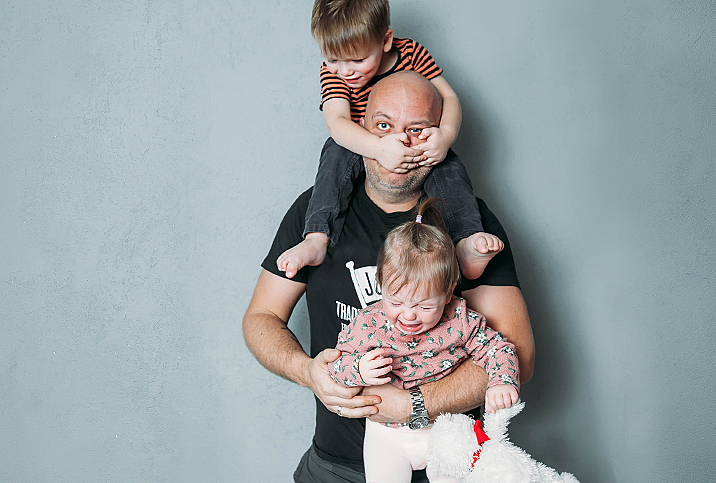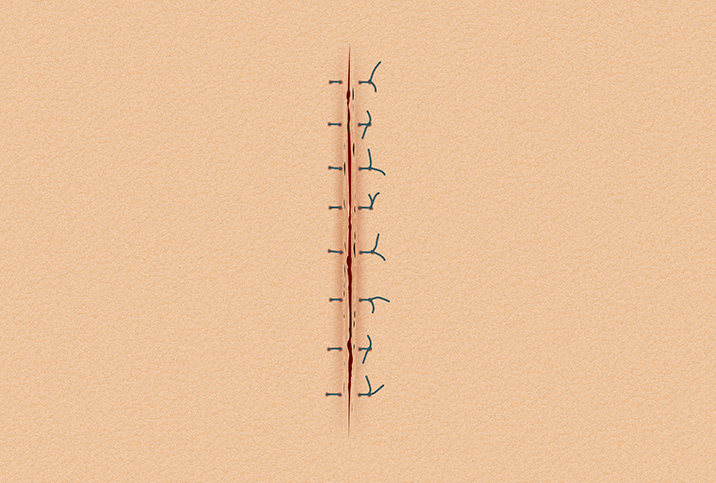How to Prioritize Your Relationship as a New Parent

You know your life is going to change when you bring your first (or second, or third) baby home. Suddenly, there's a tiny little life you're responsible for maintaining. For all the joy you're experiencing, it also brings a good amount of stress. And if you were the one who gave birth, that stress is compounded by hormonal changes, the physical repercussions of giving birth and, likely, an immediate bond with your child who has you attuned to their every noise, movement or possible need.
Even if you weren't the parent that actively gave birth, the experience is still stressful. You now likely find yourself overwhelmed with the care of your partner and your new baby, and may possibly feel a little left out since you may not be able to provide for your child in the same way as your partner.
In addition, with both of you functioning on little to no sleep, and managing all the stressors of having a new baby in the house, it's easy to start putting your relationship on the back burner. Or even worse, taking out your stress on your partner.
"You might despise your partner a little bit," said Shagoon Maurya, a practicing counseling psychologist and psychotherapist, and the founder of Safe Space. "You might not be able to give each other the time and attention that you know you should, and you might love your baby more than your partner."
The mental, physical and emotional changes that take place can be strong, and sometimes unpredictable. But Maurya points out that while adding a baby to the family can make it hard to feel as connected to your partner as before, your approach to this change could prove beneficial for your bond.
Communicate, communicate, communicate
Even before the baby's arrival, it's important to discuss how the family dynamic will change. This could be an exercise in best guesses—as there's no realistic way to completely anticipate every change—but it does provide an opportunity to imagine the good, the bad and the indifferent as a couple. Plus, you can get a jump on brainstorming solutions for the tough stuff. For instance, you know sleep deprivation is going to be a challenge and you know you'll have to figure out a schedule that allows you both to sleep, so plan in advance.
"It's so important to discuss expectations and to do research on how a new baby can change a relationship," said Karen Balumbu-Bennet, LCSW, a psychotherapist with a private practice specializing in maternal mental health and fertility challenges. "Solicit support. Allow for friends and family to prepare meals in advance and support with cleaning and organizing, before and while the baby is home."
When the baby arrives, the need for communication grows exponentially. It's entirely too easy to keep your mouth shut when you feel resentful or overwhelmed, or to start using passive-aggressive comments to amplify your needs rather than using more direct communication.
When the baby arrives, the need for communication grows exponentially.
"Have a weekly personal check-in and planning meeting for each week," suggested Rich Heller, MSW, a family therapist practicing in New York. "Don't be afraid to ask for what you need. Even if it seems like you're asking for something that's not the traditional role [of one partner or the other], don't be afraid to ask. Make sure your needs are expressed. Being heard is 95 percent of the battle."
As you learn to communicate, expect fights and bumps along the way—frayed nerves and new stressors are a breeding ground for miscommunication. Do your best to fight fair and to approach challenges as a team. Newfound teamwork is one of the benefits Balumbu-Bennet pointed out when discussing people starting a family.
"Partners that once operated more independently are forced to ask and accept help from one another," she said. "This may seem difficult at first, but essentially it helps to promote a stronger bond."
Show appreciation
One impossible thing to deny is that new babies are needy. They need constant attention, affection and care from both parents.
But all this neediness can lend itself to neglect between partners. It's not intentional, especially since both parents are working their hardest to care for the new little life, but that can come at a cost to the relationship itself. When sex is off the table—most doctors suggest waiting for at least six weeks postpartum—finding ways to connect intimately represents another struggle, so it's imperative to look for ways to appreciate one another.
Every day, make a point of watching your partner and pointing out the things they're doing well to support the family. If your partner is getting up to make coffee to bring you a cup while you're breastfeeding, take an extra second to tell them how much you appreciate the gesture. If your partner is taking extra "night shifts" to feed the baby because you have to go back to work, tell them you know it's not an easy task, but that it makes a real difference. "Show [gratitude] toward each other for the little things, especially in such transitional times," Maurya said. "Understand your partner still cares about you, they're just in the middle of a lot right now."
Intimacy without sex
Physical intimacy isn't everything, but it is important in a relationship, and its absence can cause resentment and stress to build.
As mentioned earlier, in the initial days following the birth of your baby, it's natural for sex to be on hold. But what that should mean is that you start looking for ways to connect with your partner, physically, mentally and emotionally. Make sure you set aside time for each other every day, even if only a few minutes. Take that time to look into each other's eyes and laugh about the day's events as a way to connect on this new roller coaster ride. If you can, Heller suggests instituting a date night as soon as possible, even if it means just leaving the baby with grandma in the other room.
In these moments you have as a couple, don't shy away from touching each other. "Find smart ways of being physically intimate, such as cuddling while sleeping or holding hands when taking the baby for a walk and expressing gratitude in kisses," Maurya suggested. By keeping physical intimacy alive, even in small ways, when the doctor gives you the thumbs up to engage in sex again, you'll be more likely to feel ready to go there with your partner.
There's no way to know exactly what trials or challenges you'll face in the first few months as a new parent, but if you're taking on the challenge with a partner, prioritizing your relationship will ultimately help you adjust to your new life as a parent. Try to approach each day with a measure of humor and grace, understanding you and your partner will ultimately make mistakes and get things wrong. And if you both work together to communicate, your family will grow even stronger as the years go by and you watch your baby grow up.


















